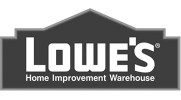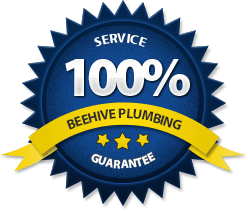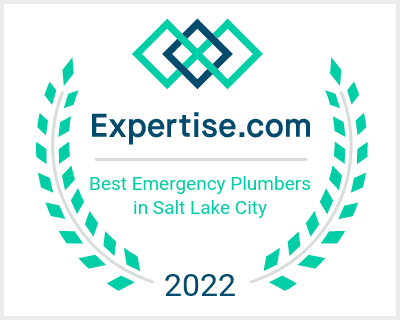Plumbing emergencies happen occasionally, which is why our troubleshooting tips come in handy when you need them most!

Plumbing emergencies can ruin any day, and they frequently occur at inconvenient times for home and business owners in northern Utah. Although there’s absolutely no convenient time for things like a water heater failure or sewer line repair, the really tough truth is that plumbing emergencies are often more expensive and stressful than most people would assume.
The good news is that when you partner up with the esteemed industry specialists at Beehive Plumbing, you’ll be putting your property’s plumbing system in qualified, talented hands. We’re always here for you when you need us and are committed to providing affordable emergency plumbing services through our comprehensive financing options, but we also want you to be proactive about troubleshooting emergency scenarios prior to our team’s arrival.
That’s why we’ve developed the below list of troubleshooting tips that coincide with the most common plumbing emergencies that we see throughout our local area!
Four Common Plumbing Emergencies & How To Troubleshoot Them!
Although there are many different plumbing emergencies that could potentially plague your home or business in northern Utah, the following are some of the most common scenarios that our technicians resolve on a daily basis:
1. Leaky Fixtures — Showerheads, Toilets, Faucets, etc.
None of your plumbing fixtures are going to last forever, which is why serious fixture leaks are one of the most common nuisances that we hear about from our clients. This includes toilet leaks and showerhead issues that can simultaneously disrupt your daily routine and waste a ton of water.
So while you’re waiting for our experts to arrive at your property, you can take a few steps on your own to prevent water damage:
Shut Off Your Water Supply
One of the most important things to do in a leaky fixture scenario is turn off the fixture’s shutoff valve. Most toilets and sinks have relatively easy-to-find shutoff valves, but depending upon the leak’s severity, it might be necessary to shut off your property’s main water valve.
By keeping your property’s water supply at bay, you can prevent water damage before our team’s arrival.
Identifying The Type of Leak You Have
Plumbing leaks happen for various reasons, so understanding the type of leak you have can help you temporarily address it.
Your troubleshooting will largely depend upon which fixture is leaking. For instance, adjusting the flapper or float valve can momentarily alleviate a toilet leak, and wrapping a towel or cloth around a leaky showerhead can temporarily absorb the water.
Collecting Water
Sometimes, the best thing to do with a leaky fixture is to place a bowl or bucket underneath the leak to collect excess water. This can help you prevent potential damage to your cabinets and floors, which makes our team’s job a lot easier.
If your excess water is building up quickly, you’ll likely need to periodically empty the container to avoid overflow. Even though this can sometimes seem like a quick-fix approach, it’s crucial to get a permanent repair as soon as possible to revitalize your fixture’s correct and efficient functionality.
2. Damaged Water Lines
Damaged water lines within your property can quickly turn into an emergency situation, and this is largely due to potential water damage and significant system disruptions.
Below are some troubleshooting tips to help you minimize damages and manage this stressful situation before the Beehive team shows up:
Shut Off Water
Just like with many plumbing emergencies, it can be very wise to shut off your property’s main water supply as quickly as possible. Shutting your property’s water supply off will subsequently shut off the water supply to the damaged pipe, which is huge for preventing flooding and other damages.
Relieving Pressure
You’ll also need to relieve any built-up pressure within your plumbing system shortly after shutting off your main water supply. This is easy because it only requires opening your faucets at your property’s lowest point (e.g., the ground floor or basement).
This will force any remaining water within your pipes to drain.
Containing & Mitigating
Wet-dry vacuums, buckets, and towels are often needed to remove standing water and dry up any household areas affected by the damaged water line. If you can access your damaged water line, it could also be a good idea to wrap it up with plumber’s tape to temporarily seal the leak until our experts arrive.
3. Water Heater Leaks
Water heater leaks can wreak havoc on any property, and these issues often go by undetected because we usually keep our water heater units out of sight. When water heater leaks are unnoticed for too long, it can lead to serious damage.
However, when you come across a water heater leak at your home or business, you can take the following immediate steps to address the leak before our water heater specialists show up:
Shut Off the Water Supply & Power
Turning off the water heater’s power and water supplies is always the first troubleshooting step in these situations.
If you have an electric water heater, you’ll need to locate your unit’s circuit breaker and shut it off. If you have a gas water heater, you’ll need to find your gas shut-off valve and make sure it’s placed in the “off” position. You’ll then need to turn off your unit’s water supply to minimize further damage.
Identifying The Leak’s Origin
If possible, you could try to pinpoint where the leak is originating from. Water heater leaks occur at various points of the appliance, including drain valves, pressure relief valves, temperature valves, and the tank itself.
When the leak is coming from a valve, you could potentially use a pipe wrench to carefully tighten it; however, it’s crucial to be gentle because overtightening can make your issues worse.
Burst Tank Risks
It’s possible to experience serious water heater failures in these scenarios, including tank bursts. When this happens, large amounts of water can spill out into your property and pose significant structural and flooding damage. This can create all sorts of safety hazards, and it’s inevitably an extensive repair job.
This is why it’s absolutely essential to reach out to our emergency plumbers as soon as you recognize water heater leak warning signs.
4. Clogged Toilets & Drains
Clogged drains and toilets can be difficult to deal with, and this is another very common hassle that we help fix on a regular basis. When you’re in this type of emergency situation, you can consider the following steps while you’re waiting on our Master Plumbers:
Consider a Plunger
Plungers can actually be very useful when dealing with clogged toilets and drains, so it’s smart to try plunging before deeming your clog an emergency situation.
One thing to remember is that you should always use the right type of plunger. Flange plumbers are best for toilets, and cup plungers are used for tubs and sinks.
Drain Augers
When plunging doesn’t work, trying a drain auger/snake is technically possible. These tools do a great job of breaking up pesky blockages, and they can often be found at hardware stores.
However, it’s important to remember that drain augers are pretty complex pieces of machinery that are typically best left in professional hands.
Be Careful with Chemicals
It’s also important to be careful while using chemical drain cleaning products in these scenarios, because these products are often bad for the environment and your plumbing system.
This means that you should ensure proper ventilation and wear protective gear while using these cleaning agents. In general, we don’t recommend these products because of potential pipe corrosion.
Contact Our Master Plumbers Right Away When You Have A Plumbing Emergency At Your Property!
Plumbing emergencies are always very stressful, but you can be sure that your situation will be swiftly resolved when you reach out to our Master Plumbers.
Our team has decades of experience helping home and business owners throughout northern Utah with their plumbing needs, so you can rest assured that we’ll be able to handle whatever you’re currently experiencing.
Contact us online or call us at 801-849-3831 to get one of our plumbers over to your property ASAP!













